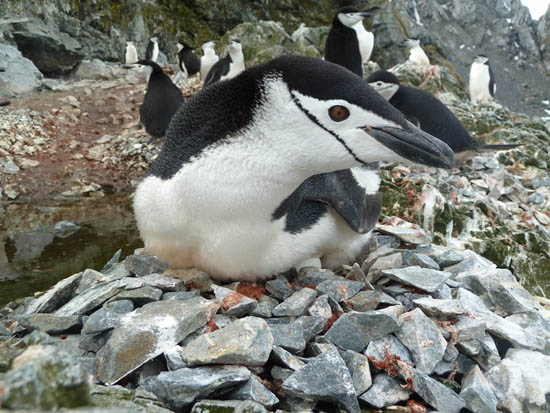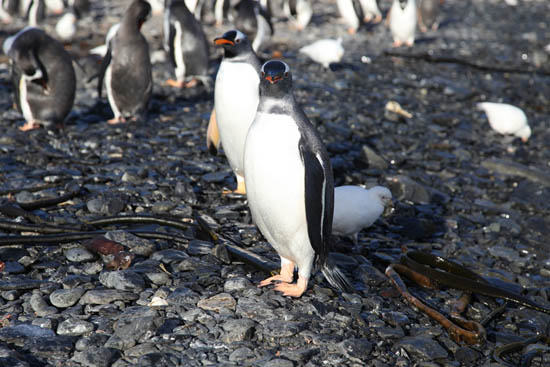 The Sex Conundrum: Scientists are exploring a new method for determining the sex of penguins.
The Sex Conundrum: Scientists are exploring a new method for determining the sex of penguins.
There are a large number of animals where it is difficult to differentiate between males and females. To address this issue, scientists have used genetic techniques, which are often expensive and take some time to get results.
In a pioneering and interdisciplinary research, researchers from the University of Coimbra (UC), in collaboration with colleagues from three countries (United Kingdom, Spain and Bulgaria), explored the technique of flow cytometry as a method to determine the sex of penguin species and evaluate the potential to apply this technique to other animals.
Flow cytometry is characterized by being a fast and accurate technology, which allows measuring and evaluating a huge number of cells simultaneously and obtaining detailed information about the behavior of each cell.
The results, applied to samples of two species of penguins (gentoo penguin Papuan Pygoscelis and bearded penguin Pygoscelis Antarctica), revealed that, when compared with other techniques, flow cytometry allowed the correct identification of penguin sex in more than 80% of the individuals, showing its promising character for the identification of the sex of animals with different sex chromosome sizes.
 João Loureiro, main author of the article published in Journal of Experimental Marine Biology and Ecology, emphasizes that «this work, which emerged as a pilot study, revealed that flow cytometry, a technique widely used in the clinical area, can be an excellent alternative to the methods in use for animal sexing, as it allows faster and faster results to be obtained. less expensive'.
João Loureiro, main author of the article published in Journal of Experimental Marine Biology and Ecology, emphasizes that «this work, which emerged as a pilot study, revealed that flow cytometry, a technique widely used in the clinical area, can be an excellent alternative to the methods in use for animal sexing, as it allows faster and faster results to be obtained. less expensive'.
For his part, the coordinator of scientific projects in Antarctica and senior author of the same article, José Xavier, stresses that «this important work is part of national and international scientific programs on Antarctica in which the University of Coimbra is involved, focused on understanding how the Southern Ocean can lead us to understand the effect of climate change, as what happens there can lead us to better understand what might happen in the rest of the planet».
Furthermore, continues the UC researcher, "this study significantly contributes to the development of better techniques applied to science."
Article reference:
João Loureiro, Daniela Tavares, Sónia Ferreira, José Seco, Phil Trathan, Tiago Valente & José Xavier (2014). Sex identification in Gentoo (Papuan Pygoscelis) and Chinstrap (Pygoscelis Antarctica) penguins: can flow cytometry be used as a reliable identification method? Journal of Experimental Marine Biology and Ecology 461: 364-370
Author: Cristina Pinto – Press Office – University of Coimbra
Science in the Regional Press – Ciência Viva
Image 1: gentoo penguin Papuan Pygoscelis
Image 2: Bearded penguin Pygoscelis Antarctica

















Comments